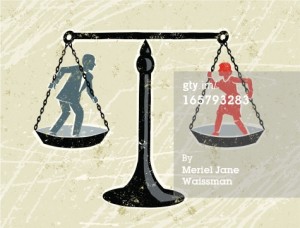
A response to a recent piece titled “TIME Magazine is Wrong. Rape Culture Does Exist” published in The Humanist by feminist Ashley Jordan
I will not discuss all of the problems within Jordan’s piece within this page (There is so much wrong packed into this one post, I could write an entire novel-length systematically dismantling everything that’s wrong with it. But I don’t have time or energy for that today…), but will discuss problems concerning Jordan’s assertion that wondering whether victims of rape are telling the truth is evidence of and/or promotes ‘rape culture.’
Jordan defines rape culture as “an environment in which rape is highly prevalent, normalized and excused by society’s media, popular culture and political figures […] perpetuated through the use of misogynistic language, the objectification of women’s bodies, and the glamorization of sexual violence, which creates a social culture that disregards women’s rights and their safety.” Mere wondering whether people who allege to be raped, according to Jordan — as it seems from her piece — is evidence of and promotes ‘rape culture.’
Jordan’s wording, “wondering whether victims of rape are telling the truth,” is problematic because she assumes women [note that her definition of rape culture specifically mentions women and excludes men – intentionally or unintentionally ‘erasing’ male victims of rape] who make allegations of rape are victims of rape just because they say they are; the use of the word ‘victim’ betrays a bias within Jordan – that hearing testimony is enough for Jordan to believe someone actually is a victim – regardless of any evidence supporting allegations or demonstrating innocence of the accused and that, which must follow, that an alleged rapist really is a rapist – all on mere testimony.

Jordan could instead write about — and rightfully criticize — people who hastily dismiss claims of rape without sufficient reason to do so, but does not. Wondering whether someone is a victim of rape is not hastily dismissing claims of rape or “disregarding women’s rights and their safety,” but rather is a reasonable response to a very serious allegation. One may wonder and later believe someone who claims to be raped [upon obtaining sufficient evidence], for instance; wondering and hastily denying are not equivalent.
Skeptics — those who, at the very least, should withhold judgment about a claim if there are no salient reasons to believe a claim — should ‘wonder’ about allegations of sexual assault and even ‘trust, but verify‘ when this is deemed appropriate (and the burden of proof, by the way, is on a person making a claim – one need not ‘disprove’ something if there is no evidence to ‘prove’ it.
A bearer of information, though, can be an unreliable source – especially people who claim to have been raped but have a history of false allegations and behavior which would diminish one’s credibility. A story about sexual assault may, for instance, lack credibility if the person claiming to be assaulted contacts the alleged perpetrator following the alleged rape claiming they enjoyed themselves, wanting to arrange future meetings, etc.
Even when there is no reason to actively doubt or outright deny a claim, it is good practice to withhold a judgment until evidence — something much more than mere testimony — supporting a claim is offered, especially when the consequences of holding a belief are dire. Allegations of rape, for instance, can lead to extreme consequences…even if a person accused is later found to be not guilty and/or the person making an allegation retracts an allegation (people often remember allegations and fail to notice/not remember retractions and false claims).
—

Once again, as is usually the case, a feminist casts people who actively question their beliefs as horrid. Disagree with, question, or even wonder about the ‘approved mode of thinking’ and you are a ‘rape apologist’ misogynist who disregards women’s rights and their safety. Rather than having a productive conversation or discussing ideas, feminists often attack people – attempting to dismiss them from a discussion.
Sadly, reasonable conversation with feminists like Ashley Jordan (although she may ‘prove me wrong’) is next-to-impossible because, as I mentioned, personal attacks are the order of the day and discussion is absolutely refused despite open and honest invitations to have discussion from those who dare to disagree [or wonder]. One feminist, Amanda Marcotte, in a stunning dishonest display, even released her own debate challenge but then refused to honor it.
As a skeptic, I am willing to change any and all of my beliefs if provided sufficient argument, evidence, and reason to do so. Jordan, though, and her approach to feminism, do not allow for this. I am willing to revise my beliefs about Jordan and her approach to feminism. The ball is in your court, Jordan. I doubt a response will come, though. I wonder…
As always, feel free to comment below.
P.S. Donate to Ben Radford’s legal fund ($2065/$10,000 at time of this posting) and see his page ‘Response to Stollznow Accusations.’ You’ll be glad you did. Please help a skeptic in dire need.
Consider reading other pieces within this website…
When feminism is incompatible with skepticism [#1]
Atheism has nothing to do with feminism or pro-choice positions
Secular Woman – dogmatic feminism within the secular community
CNN is not promoting ‘rape apology’ and ‘rape culture’